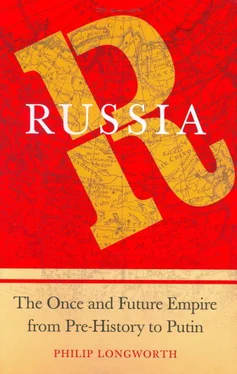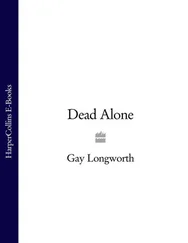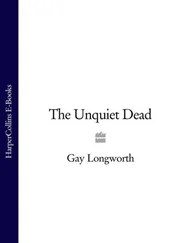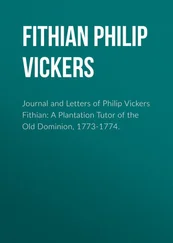Moscow’s rulers began to hanker after imperial dignity, both to boost their authority in their own domains and to enhance their standing abroad. They did not aspire to rule the world, however. Nor is there evidence that they contemplated ruling a multiplicity of different peoples as the Romans had done. Muscovy could double its territorial extent and power merely by extending its rule over linguistic Russians who were Orthodox Christians, through ‘the ingathering of the Russian lands’ as it came to be called. But the first priority was to complete the task that Vasilii the Blind had begun: to establish direct control over the subject princes and exploit their lands and people in a systematic way
From this point of view the reign of Vasilii’s twenty-two-year-old son, Ivan III, did not begin auspiciously. Within a year of his accession in 1462, Novgorod had applied to King Casimir of Poland-Lithuania for support against him, and the Knights of the Sword had invaded the Principality of Pskov from Livonia. Yet eventually he was to succeed on almost every front. He was to become the great centralizer of the Russian principalities, and an historical figure of comparable weight to his contemporaries Henry VII of England and Louis XI of France.
He resolved the ambiguous status of the more important apanage principalities. Their lords ruled on their own account, and although he was grand Prince — their acknowledged superior — in practice they could defy him. He might call on them to join him with all their force to repel an invader or to attack an enemy’s stronghold, and they might very well comply, like those princes who had joined Dmitrii of the Don in his famous battle against the Tatars years before. But again they might not. Their assessments of necessity and advantage were not necessarily the same as his, and, even though they had a formal and moral obligation to the Grand Prince, they had the power to act as they pleased. And as long as they retained that power, Muscovy would be vulnerable to foreign enemies. Furthermore, the perpetuation of a subordinate prince’s command over his own forces allowed the possibility of civil war. As the reign of Vasilii II had proved, a grand prince was ill-advised to trust even his nearest kith and kin. And so Ivan III determined to be ‘sovereign over all the sovereigns of the Russian land’. His aim was to subordinate the princes to his will, absorb their private armies into his own army, and transfer such of their boyars as might be useful — and unconditionally loyal — into his own service. In short, he wanted to monopolize, and rationalize, power over the Russian lands. He also set out to solve the perennial succession question, to make possession of the throne hereditary, the permanent property (votchina) of himself and his descendants, requiring oaths not only to himself but to his chosen heir. 1
In terms of Muscovy’s territorial expansion the results were dramatic. In the 1470s Muscovy secured all Novgorod’s northern territories as far as the east and west banks of the White Sea, and the lands of Great Perm eastward to the river Ob, which bordered on the frontier with the Khanate of Siberia. This brought more native peoples under Ivan’s rule: Voguls and Ostiaks, Votiaks and Cheremis. The city state of Tver, which had hitherto blocked Moscow’s way to the north, had been incorporated; Novgorod was crushed, and its constitution, which incorporated liberties for the propertied element, was overridden. Ivan had already annexed Iaroslavl (1463) and Viatka to the south. He stood firm against the Golden Horde’s last attempt to bully Muscovy in 1480, and in 1493 he adopted the title ‘Sovereign of All Russia’.
But territorial advance did not end there. Towards the west, Toropets was secured, and the important area between the rivers Ugra and Desna as far as the Berezina; and towards the south-east, also at Lithuania’s expense, the towns of Briansk and Chernigov were taken. Muscovy’s power now extended to not far short of Kiev itself. More than this, by the time of his death in 1505, Ivan had increased his country’s military power, placed the state’s finances on a sounder footing, and laid the foundations of a system by which property and status depended on service to the Grand Prince. Inheritance was still to count, but it came to apply as much to obligations — particularly obligations to serve the Grand Prince — as to property and privilege.
These achievements may be enough to justify Ivan’s sobriquet ‘the Great’, but there was also another: it was he who made Muscovy a European power to be reckoned with. He established diplomatic relations with Ottoman Turkey as well as with Poland-Lithuania and the Tatars, and exchanged embassies with Denmark, Venice, Georgia, Hungary and the Holy Roman Emperor. Nor did Ivan behave like a respectful newcomer among Europe’s heads of states. When the Emperor, anxious to please him, offered him the title of king, Ivan summarily rejected it. He would not be patronized. He had a better estimation of his dignity than that.
Ivan, more than any other individual, was the architect of the Muscovite state, and he gave it the capability of becoming an empire. But there were costs. His rule was exacting and oppressive. He crushed Novgorod and its autonomous institutions; he carried out dispossessions on a large scale; and his reign has been described, with some justice, as one of ‘cultural depression and spiritual barrenness’. In all these respects Ivan III resembles Ivan the Terrible, Nicholas I, Stalin and all the other Russian tyrants. But is this fair? Were the Tudor rulers of England less tyrannical than he? Were their exactions less demanding? Did Catholics and humanists not suffer under them? Should not historical figures be judged in context, and according to the standards of their own times rather than of ours? 2
There is no doubt that Ivan’s reign saw a marked upward surge in Russia’s fortunes, and that he was in large measure responsible for it; but, like so many great historical figures, he enjoyed a good share of luck. The death of his first wife, Maria of Tver, in April 1467, is a case in point, for the sad event opened up an unexpected opportunity. In 1469 a Byzantine Greek called Iurii Trakhaniot arrived in Moscow bearing a letter from Bessarion, an eminent scholar from Constantinople who had taken refuge from the Turks in Rome. The letter proposed marriage between Ivan and Zoe Palaeologue, the daughter of the Despot of Morea and niece of Constantinople’s last emperor. 3Whatever the lady’s personal attributes, politically the offer was tempting. A union between the house of Moscow and the imperial dynasty would bring prestige and open up tempting prospects of aggrandizement.
Yet there were dangers attached. The Palaeologues were virtual beggars. A kinsman of the girl was known to have been touting his titles round the courts of Europe for sale. Worse, Zoe’s Orthodox credentials were questionable. She was a ward of the Pope, Paul II. As for the intermediary, Bessarion, he had played a prominent part in the notorious Council of Ferrara/Florence, had subscribed to the union with Rome, which Muscovy had rejected, and now wore a cardinal’s hat. Clearly the Pope was offering Zoe as bait, hoping to bring the Russian ruler into communion with Rome. If it came to marriage, the Orthodox Church might withdraw its support and the Grand Prince could well be rendered powerless in the face of a popular rebellion. Nevertheless, Ivan responded positively to the overture. Evidently he and his closest advisers thought they could take the bait and avoid the trap. Negotiations began. They were to last the better part of three years.
At last, in 1472, Zoe and her suite arrived in Moscow, accompanied by a papal legate who brought her a handsome dowry of 6,000 gold ducats donated by the Pope. The marriage took place in Moscow in November — though not before Zoe had been renamed Sofia, presumably in order to emphasize her commitment to the Eastern Church and distance her from her Catholic connections, rather as a novice would be renamed on taking holy orders as a nun. Nevertheless, the Metropolitan and other prelates excused themselves from the ceremony on canonical grounds, so an arch-priest and Ivan’s personal chaplain officiated. Obviously carefully instructed and monitored, the bride was to observe every behavioural rule and convention of a strictly Orthodox grand princess, and, for the moment at least, there was to be no obvious public reaction. However, Ivan lost no time in exploiting his wife’s imperial association in support of his own imperial pretensions. He adopted the double-headed eagle as his insignia, using it on his seals and emblazoning it on the backrest of his wooden throne. 4
Читать дальше





![Stephan Orth - Behind Putin's Curtain - Friendships and Misadventures Inside Russia [aka Couchsurfing in Russia]](/books/415210/stephan-orth-behind-putin-s-curtain-friendships-a-thumb.webp)





